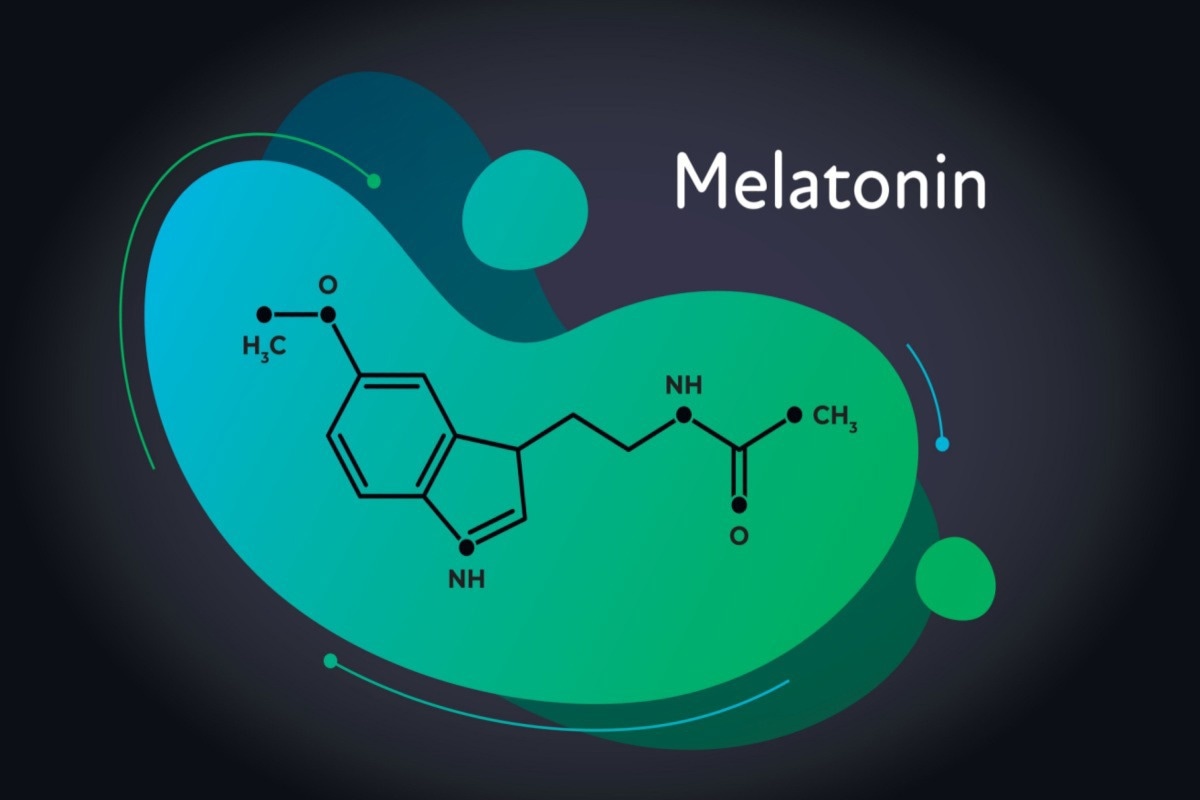The coronavirus disease 2019 (COVID-19) pandemic continues to persist due to emerging variants of the severe acute respiratory syndrome coronavirus 2 (SARS-CoV-2) that are associated with immune escape and enhanced infectivity. This has led to an increasing number of breakthrough infections; however, vaccines continue to protect against severe and critical disease.
 Study: A Pilot of a Randomized Control Trial of Melatonin and Vitamin C for Mild-to-Moderate COVID-19. Image Credit: STOP_WAR / Shutterstock.com
Study: A Pilot of a Randomized Control Trial of Melatonin and Vitamin C for Mild-to-Moderate COVID-19. Image Credit: STOP_WAR / Shutterstock.com
Introduction
Successive waves of COVID-19 cases have led to millions of hospitalizations and deaths throughout the world, which subsequently put considerable stress on healthcare systems. This resulted in intensive efforts to find or repurpose drugs that could protect against the hyperactive systemic inflammation that is characteristic of severe and fatal COVID-19.
COVID-19 appears to create oxidative stress that subsequently causes an inflammatory cascade resulting in cellular injury and multiple organ damage.
Many patients who test positive for COVID-19 may take nutritional supplements; however, the evidence of their utility in treating this infection remains limited. The current study explores the effects of antioxidant molecules ascorbic acid (vitamin C) and N--acetyl-5-methoxytryptamine (melatonin) in limiting cytokine release and, as a result, arresting the progression of COVID-19.
Prior animal research has shown weakened immunity in cases of vitamin C deficiency and increased damage to the lungs when infected with influenza H1N1. Moreover, vitamin C levels drop in acute illness.
A cocktail of antioxidants, including ascorbic acid, given in COVID-19 has revealed an association with reduced inflammatory markers in 80% of cases.
Similarly, melatonin production in the body falls with age and has been postulated to underlie the increased severity of COVID-19 with age, given the immunomodulatory effects of this molecule.
Both the nuclear factor kB (NFkB) pathway and NLRP3 inflammasomes, both of which are activated during viral replication, are inhibited by melatonin. Melatonin also protects against lung injury by oxidizing molecules and reducing inflammatory cell infiltration during viral infection.
Prior studies have shown a shorter hospital duration, better oxygenation, and improved sleep following melatonin treatment.
Study findings
The researchers used a permitted modified version of the Wisconsin Upper Respiratory Symptom Survey (WURSS) to evaluate upper respiratory tract symptoms and effects on daily activities. The study was performed between October 2020 to June 21, 2021, in Pennsylvania.
The patients took either vitamin C, melatonin, or a placebo for two weeks. All three groups had comparable symptoms and quality of life at baseline. However, the group receiving melatonin showed an improvement in symptoms between days three and nine, which was not observed in those receiving vitamin C.
Similarly, quality of life improved faster during the same period in the melatonin group. There was no significant difference in sleep duration.
The changes described in the current study were small, as the period of observation was short and the time points for the survey were daily in frequency.
By day 14, all participants reported stabilization of symptoms and quality of life. An additional survey at day 30 demonstrated that some continued to experience symptoms and a lower quality of life.
Implications
The current study used a daily survey protocol to track small changes in symptoms and quality of life with the use of ascorbic acid and melatonin. The results indicate that 1,000 mg of vitamin C daily did not produce any change in the rate of symptom relief or improvement in the quality of life among COVID-19 patients, despite its antioxidant characteristics.
Prior studies with vitamin C have shown conflicting results.
However, melatonin at a dose of 10 mg daily was associated with a favorable symptom score from days three to nine of the study. This is the first time melatonin has been tested for its utility in treating outpatients with COVID-19. The apparent benefits of this drug may be due to its effects on oxidative stress and immune signaling.
However, all patients did not begin their supplements at the same time. Though most started by the third day of study enrollment, the period from symptom onset was not equivalent for all patients. Delayed treatment has been proven to reduce the favorable effects of these agents.
The small study size makes further research necessary to validate the effects of melatonin supplementation in COVID-19 in both the acute stage and long Covid.
Importantly, the differences in the time of diagnosis and the day of illness when the drug treatment was initiated may more accurately reflect real-world situations, where presentation, testing, and the time when test results become available vary between patients.
OTC drugs can be easily accessed by most patients, and their utility should be investigated carefully.
Patients infected with COVID-19 whose recovery process could be accelerated by safe, accessible supplements might return to work and life activities faster and thus meaningful interventions may have an impact on society as a whole.”
This requires large-scale studies to validate the modified WURSS scale used in the current study, as well as any improvements associated with the use of melatonin.
Journal reference:
- Fogleman, C., Cohen, D., Mercier, A., et al. (2022). A Pilot of a Randomized Control Trial of Melatonin and Vitamin C for Mild-to-Moderate COVID-19. Journal of the American Board of Family Medicine. doi:10.3122/jabfm.2022.04.210529.